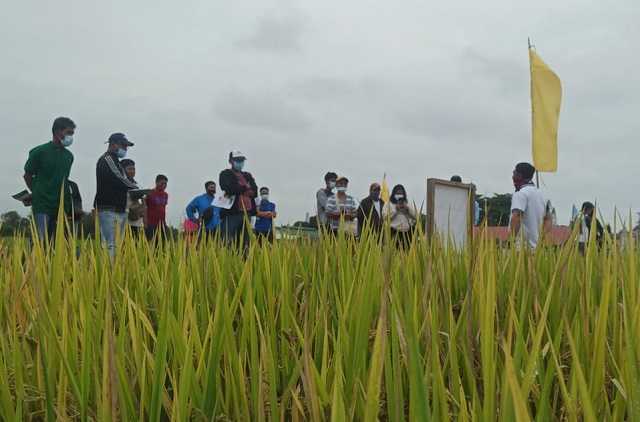
Eight hybrid rice varieties from public and private companies were shown to the public in a three-day farm walk at the Department of Agriculture-Philippine Rice Research Institute (DA-PhilRice) in San Mateo, Isabela, March 9-11.
Two of the hybrids showcased were the public hybrid Mestizo 1 (M1) and Mestiso 20 (M20). With 123-day maturity, M1 averages 5.4t/ha and can yield 9.9t/ha. Meanwhile, M20 matures in 111 days, averages 6.4t/ha yield, and reaches a maximum yield of 11.7t/ha.
According to Dr. Fidel M. Ramos, lead of the Public Hybrid Rice Seeds System Project, hybrid rice derbies were established nationwide to showcase the best hybrids suited in various locations and as support to DA’s Rice Resiliency Project (RRP).
Backing up the cultivation of hybrid rice in their area, Eduardo R. Fermin, president of the league of barangay captains, said that through the derby, hybrid rice has proved its good performance in their municipality.
Together with DA-PhilRice, private companies particularly SL Agritech, Longping, Syngenta, Bayer, Aljay, and Bioseed participated in the hybrid rice derby at DA-PhilRice Isabela.
About 100 farm school owners, agricultural extension workers, and trainees from the Agricultural Training Institute also participated in the three-day farm walk.
The DA’s RRP intends to produce more rice to lift our rice sufficiency level from the present 87 to 93%. To achieve this, one of the components of RRP is the expanded hybrid rice production. On-farm studies show that hybrid rice yields higher than the inbred varieties by a minimum of 15%.
To know more about hybrid rice, contact the PhilRice Text Center (0917-111-7423).




